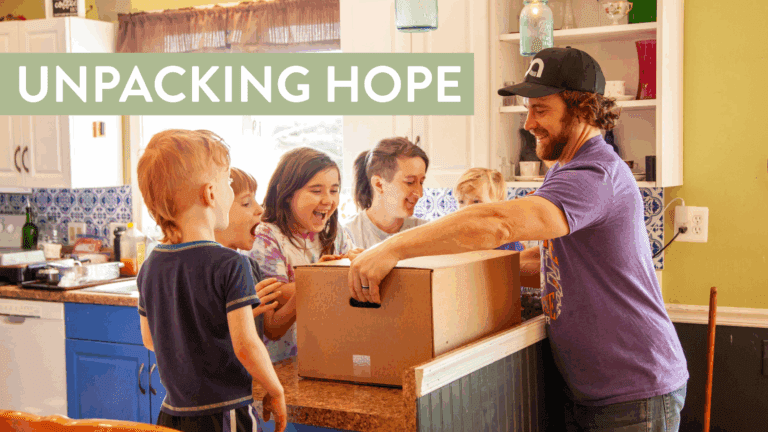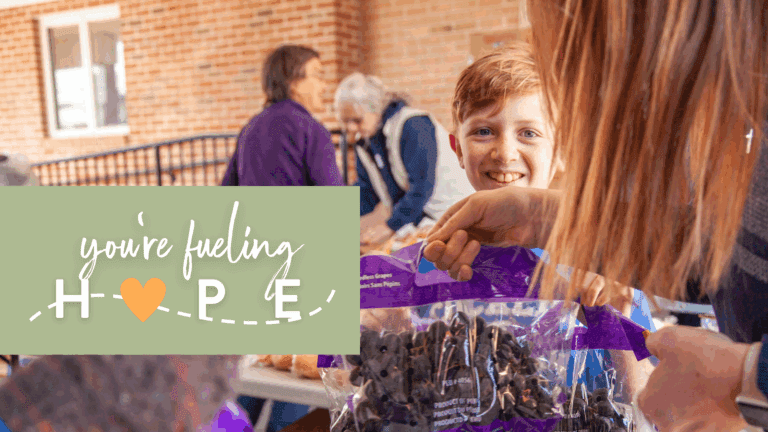
First, let’s get one thing straight—any donation is a good donation. There are too many people in the United States that go hungry every day for anyone to turn down food donations. According to the United States Department of Agriculture (USDA), approximately 40 million people lived in food-insecure households in 2017, which is 40 million too many. What you may not realize is that these people may be your neighbors.
In Lancaster County, 9.5 percent of the population had food insecurity in 2017—that’s 50,760 people. At Blessings of Hope, we work every day to fight the battle against hunger. We serve approximately 25,000 meals per day, with 65 percent of our operating revenue coming from individual donations. So the big question you’re probably wondering is, what can you do to help? To help answer your question, we’ve put together a list of facts about food bank donations that will help your donations have the most impact in your community.
Food Banks Need Monetary Donations More Than Food
While food donations are important, especially during busier seasons, food banks cannot pay the bills with these types of donations alone.
When you donate money right to an organization, you know that your donation will directly go to helping that organization serve underprivileged families and individuals. For example, 100 percent of the operating revenue at Blessings of Hope comes from individual donations and ministry partners. Events like fundraisers also help food banks and food distribution centers raise money, but monetary donations go directly to helping your local community.
Food Banks Do Not Receive All (If Any) of Their Funding From the Government
Unlike most businesses, non-profit food banks rely on volunteers and donors to keep the organization running. Government funding is rarely received, though this is a common misconception. While food banks can apply for grants to help funding or sometimes receive donations from government agencies, it’s not a stable source of income.
To clarify, there are government assistance programs that are in place to help fight food insecurity in the United States. Programs like SNAP, WIC, and TEFAP are some of the more well-known organizations that help individuals in need.
The Need for Food Banks Hasn’t Decreased
While the USDA states that food insecurity went from 12.3 percent to 11.8 percent between 2016 and 2017, 1 in 8 people are still at risk of hunger. Just because statistics and numbers change, doesn’t mean the problem is solved. In fact, the number of people that go hungry is still higher than what it was before the 2007 recession.
Food banks are still very much needed, not just in Lancaster County, but across America. At Blessings of Hope, we’re so thankful for our 1,800 registered volunteers that understand the importance of providing food for our neighbors. Through our ministry partnerships and our Truckloads of Hope and Hands of Hope programs, we’ll work together to bring the gift of hope to families.
Food Banks Take More Than Just Canned Goods
Just because the word “food” is in the name, doesn’t mean that’s the only type of food bank donations that will be accepted at certain facilities. Families are also in need of perishable and non-perishable goods that most of us take for granted. Here’s a quick list of non-food items that are extremely helpful to food banks:
- Toothbrushes and Toothpaste
- Diapers and Baby Wipes
- Shampoo
- Toilet Paper
- Personal Hygiene Products (e.g. sanitary pads)
- Deodorant
Donating non-food items can go a long way into helping your community. Since these items are essentials, you’ll know your donations are going directly to families that need them. Just make sure everything you donate (including food) has a label, isn’t expired, and doesn’t have packaging that’s damaged. No matter what you donate—whether it be food, toiletries, or even your time—know that your efforts are always appreciated. Blessings of Hope wants to be that “bridge of opportunity” and help people that are living in poverty become self-sustaining individuals. With your help and donations, we can work together to create a better community through food and acts of kindness. Contact us today if you want to make a donation or become a volunteer!





